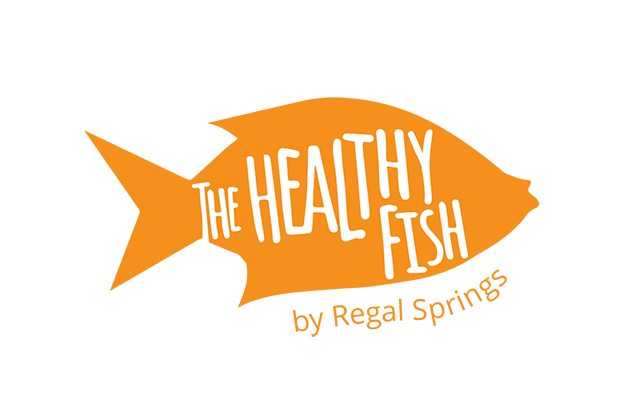You’ve heard of essential minerals, and you know that they have something to do with nutrition, but what exactly are they? What kinds do we need, and how do we incorporate them into our diet?
We’re here to break down what it is that makes these essential minerals so, well, essential.
In their most basic sense, minerals are naturally-occurring inorganic substances that we need to maintain our health. Since the human body cannot produce them, these minerals must be supplemented into our diets in order to keep us from becoming ill.
Essential minerals are split into two groups: major minerals and trace minerals. Both types are required by our bodies to function correctly, but we need to consume more of the major minerals to ensure our bodies get enough of what we need.
Major Essential Minerals

1. Calcium is essential for healthy bones, and bones are the main storage site of calcium in the body. However, calcium also plays an important role in blood clotting, enzyme function, passage of fluid through cell walls, normal heart action and muscle contraction.
- Commonly found in: yogurt, cheese, fish, leafy green vegetables.
2. Potassium is involved in removing toxins and delivering nutrients. It regulates the heartbeat, aids healing, helps the liver to function and regulates nerve and muscle action.
- Commonly found in: cereal, fresh fruit, vegetables, bananas, fish, nuts, seeds.
3. Sodium stimulates nerve and muscle function, maintains fluid balance in cells and supports the absorption of certain nutrients.
- Commonly found in: salt, soy sauce, vegetables.
4. Magnesium supports more than 300 biochemical reactions, keeps your heart beating, builds strong bones and boosts immunity.
- Commonly found in: beans, dark leafy greens, nuts, fish, milk, yogurt.
5. Phosphorus builds healthy bones and teeth, metabolizes carbohydrates, fats, and proteins and builds nerve and brain cells.
- Commonly found in: dairy foods, fish, meat, whole grains.
6. Chloride functions as an electrolyte, forms a digestive enzyme and aids digestion of certain vitamins and minerals.
- Commonly found in: salt (seaweed/olives), tomato, rye.
7. Sulfur aids in digestion and waste elimination as well as general purification.
- Commonly found in: cabbage, onions, garlic, leeks.
Trace Minerals

1. Iron produces hemoglobin and myoglobin, which are oxygen-carrying proteins used to store and transport oxygen to body tissue.
- Commonly found in: red meat, poultry, eggs, green vegetables, fruit.
2. Selenium acts as a powerful antioxidant.
- Commonly found in: walnuts, fish.
3. Fluoride helps to keep teeth healthy.
- Commonly found in: fish, teas.
4. Iodine produces thyroid hormones that regulate cells.
- Commonly found in: nuts and seeds, raisins, leafy vegetables, fish, grains.
5. Zinc regulates blood sugar, heals wounds and transfers carbon dioxide.
- Commonly found in: nuts, seeds, shellfish.
6. Manganese helps to regulate blood sugar.
- Commonly found in: beans, walnuts, whole cereals, green vegetables.
What Happens if I Don’t Get Enough Essential Minerals?
Many people suffer from essential mineral deficiencies, most prominently from deficiencies in calcium, iron, magnesium, potassium and zinc. Deficiencies can result in nausea, muscle cramping and weakness, depending on the severity of the deficiency. Taking supplements or eating a variety of healthy foods can often improve the issue drastically.
For example, one common deficiency is that of potassium. Since potassium functions as an electrolyte, a lack of this essential mineral can include muscle cramping, weakness, constipation, bloating or abdominal pain. However, if you incorporate more sources of potassium into your diet, such as bananas or white fish, potassium will increase oxygenation to the brain and return proper fluid balance throughout the body.
Seafood and white fish are a fantastic way to include more essential minerals in your diet. White fish such as Tilapia is rich in vitamins as well as essential minerals like iron, selenium, calcium and phosphorus.
Can I Eat Too Much of One Essential Mineral?
While ensuring you supply your body with each essential mineral, it is important to note that consuming excessive amounts of these nutrients can be detrimental to your health. For example, consuming too much sodium may lead to you develop high blood pressure, and if you suffer from kidney disease, congestive heart failure or liver cirrhosis, it could also result in dangerous levels of water retention. Too much fluoride, on the other hand, could lead to abdominal discomfort, vomiting, diarrhea and sweating, as well as changes to your teeth. If you’re not sure about whether you are getting too much or too little of any mineral, it’s best to consult with your doctor.
In general though, eating a well-balanced diet will usually help you avoid an essential mineral deficiency. Paying attention to what kinds of vitamins and minerals are in the ingredients of your meals will help you to strike the right balance.
Stay informed on nutrition by learning about vitamins too in the A to Z of Vitamins.
Photo Credits: ILEISH ANNA / Shutterstock Inc., marilyn barbone / Shutterstock Inc., Nitr / Shutterstock Inc.






